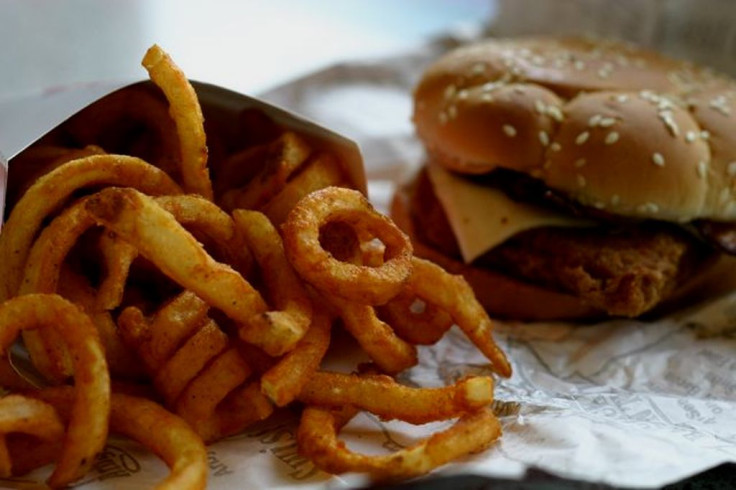Are Food Cravings In Our DNA? 2 Gene Variants Make Some People More Likely To Eat Fatty, High-Calorie Foods

Does it seem more difficult for you to resist temptation of fatty foods than it does other people? According to a new study, the problem may not be in your head but rather in your genes. Researchers are looking into whether certain genetic variants can cause people to be “hardwired” to crave foods high in fat and sugar, adding further evidence to the possibility of a “fat gene.”
Obesity is now one of the most deadly health conditions on Earth, and according to a 2002 RAND study, it leads to more adverse health conditions than smoking, heavy drinking, or even poverty. While it's clear that too much food and too little exercise are the main propellants for obesity, researchers have long suspected that certain biological factors can also put individuals at increased risks for weight troubles. This theory has sparked research into finding an elusive “fat gene.” A recent study, presented at the Obesity Society Annual Meeting in Los Angeles this week has found new evidence supporting this theory after identifying two genetic variants that seem to influence whether we opt for high or low calorie foods.
For the study, a team of researchers from Imperial College London in the UK conducted DNA genotyping on 45 white European adults aged 19-55 in an effort to identify the presence of variants near two genes which have been associated with obesity predisposition and food cravings. The volunteers were asked to look at photographs of high and low calorie foods and then rate how appealing they were, while researchers used a functional magnetic resonance imaging (fMRI) to analyze their brain activity, Medical News Today reported.
Results revealed that volunteers who possessed a variant near the FTO gene, a gene associated with obesity predisposition, and also rated the high calorie foods as more appealing showed greater activity in an area of their brain known as the orbitofrontal cortex. This area of the brain is where the rewards value of taste is represented. In addition, these volunteers also showed greater activity in a part of the brain known as the striatum, which is involved with many cognitive functions, such as learning.
The findings are exciting because they suggest a true genetic influence behind obesity in some individuals. "It means they may experience more cravings than the average person when presented with high-calorie foods — that is, those high in fat and/or sugar — leading them to eat more of these foods," lead researcher Dr. Tony Goldstone explained in a statement.
In addition to helping researchers understand the root cause of obesity, this finding could also pave the way for new “individualized” approaches to treating obesity, such as using gut hormones that target dopamine cells in the brain to alter the hormone’s influence on cravings for high-calorie foods, MNT reported.
Source: Goldstone A, Yiorkas A, Preschtl C, et al. Energy density influences interaction between FTO and DRD2 gene variants in brain reward system responses to food evaluation. The Obesity Society Annual Meeting. 2015.



























